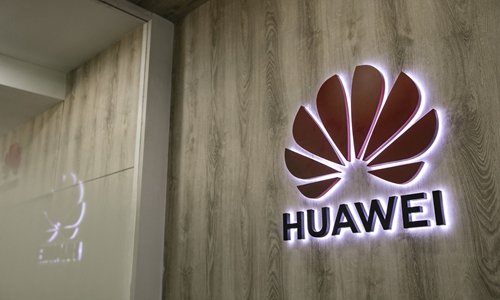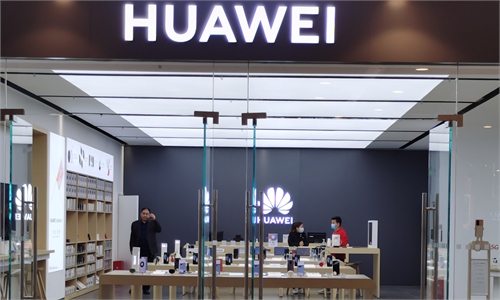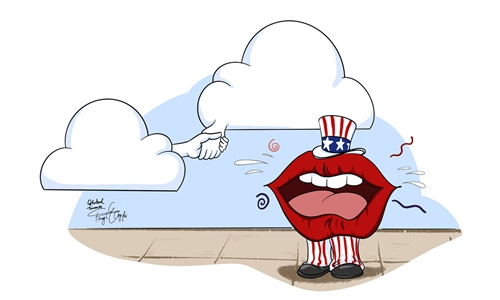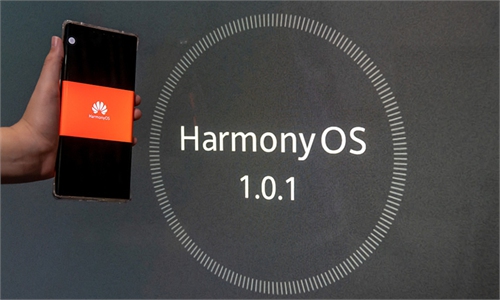
Huawei. Photo: VCG
Chinese telecommunications giant Huawei is planning to sell cars in 200 stores by the end of July, and will expand to more than 1,000 stores by year-end, according to a report from Shenwang, a domestic online news site under Tencent, on Wednesday.The report further said that Richard Yu Chengdong, executive director and CEO of Huawei's Consumer Business Group, has set a target of selling 300,000 cars next year.
Yu was appointed as CEO of the Chinese tech giant's newly created smart vehicle solutions unit on Tuesday. Yu was only tasked to lead Huawei's cloud business in April and the new assignment relieved him of the cloud post, Huawei confirmed with the Global Times late Tuesday.
Analysts said that the personnel adjustment also indicates Huawei's emphasis on the auto sector, as Yu was widely considered as the largest contributor to Huawei's smartphone business - and Huawei may hope Yu can replicate the success in the car businesses and compensate for its declining revenue.
In the first quarter of 2021, Huawei generated 152.2 billion yuan ($23.68 billion) in revenue, a 16.5 percent decrease year-on-year. Its network business maintained steady growth, while consumer business revenue declined, in part as a result of selling the Honor smart device brand in November 2020.
In April, Huawei announced that it would sell an extended range electric vehicle - the new SERES SF5 launched by China's automotive company SERES - in its flagship stores across China. The flagship stores were originally designed to sell its own phones, watches and laptops.
"In the future, we will not only provide leading smart car solutions to help partners build better intelligent vehicles, but also help them sell those vehicles through our retail network across China," Yu said.
The Chinese tech giant's ambitious foray into the new sector comes as Huawei's smartphone business faces further decline under the US' chip ban. Huawei has been also looking at other sources of revenue such as artificial intelligence (AI) technology that would be leased to hog farmers. The company is also working with domestic coal miners.
Huawei has made it clear that it does not see itself as a car manufacturer, but aims to be a digital car-oriented and new-added components provider that would enable car companies "to build better vehicles."



